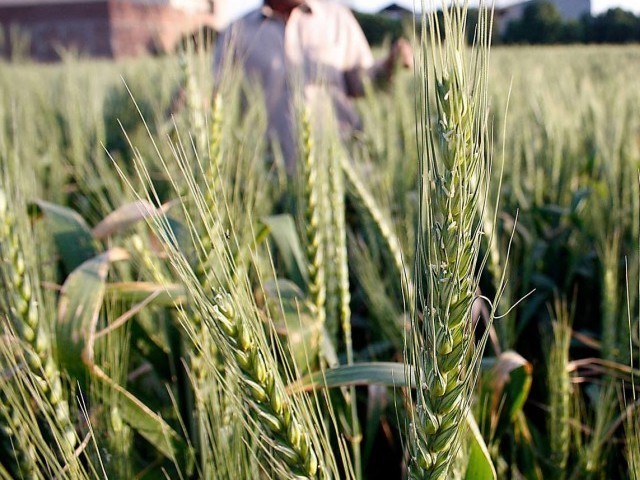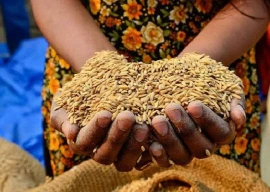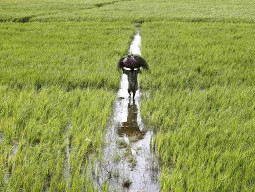
Foreign agricultural scientists have stressed the need for collaboration to enhance work on climate resilient, high yielding and fortified varieties of crops to ensure food and nutrition security amid the challenges of increasing population and inadequate productivity.
Addressing the inaugural session of a two-day international conference hosted by the University of Agriculture Faisalabad (UAF), Vice Chancellor Dr Iqrar Ahmad Khan said there was a huge gap between the productivity of progressive and traditional farmers.
“We have to promote modern trends in order to raise the per acre productivity,“ he added.
He said the country imported wheat, whereas 10 per cent in the average productivity could make it self-sufficient.
He said the UAF was developing climate-resilient wheat varieties in collaboration with the Washington State University.
The US Kansas State University Wheat Genetics Resources Centre’s Founding Director Dr Bikram Singh Gill called for utilising plant breeding to cope with climate changes.
He said that centre's gene bank, which maintains more than 5,000 wheat genetics stocks, offers opportunities for researchers to quickly improve crop yield, quality and food security.
Scientist Dr Kulvinder Singh Gill from the Washington State University said the world's record of maximum wheat production is 17 tonnes per hectare, while the average production is limited to three tonnes. The maximum yield of rice is 22 tonnes and the average only four tonnes.
Read Climate change puts food security at risk
He said that in his project, high yielding varieties of heat tolerant germplasm from the heat stressed areas were collected and their field trials had been conducted in Pakistan, India, Nepal and Egypt.
He said field trials of new varieties were also being carried out at the UAF, which were expected to yield positive results.
Dr Richard Trerthowan from Sydney University briefed the participants about achieving higher yields of wheat.
He said a hybrid variety with enhanced yield requires fewer inputs
and produces more nutritious grain.
Dr Alex Johnson from
the University of Melbourne said two billion people in the world are suffering from iron deficiency, whereas deficiency of zinc and other essential nutrients is also widespread.
He said he was collaborating with UAF researchers to explore the potential of genetically modified wheat.
Islamic Organisation for Food Security’s Programme and Projects Director Dr Zulfiqar Ali said only seven of the 57 OIC countries are meeting the food security goals.
In 2019, the OIC
countries were facing a food deficit worth $65 billion, while low hanging food worth $300 billion went waste due to lack of processing and other factors.
An expert from Tajikistan also attended the conference.
Published in The Express Tribune, February 20th 2024.

1731570357-0/elon-musk-(1)1731570357-0-405x300.webp)
-(1)1717678110-0/Kendrick-(1)-(1)1717678110-0-165x106.webp)


















COMMENTS
Comments are moderated and generally will be posted if they are on-topic and not abusive.
For more information, please see our Comments FAQ